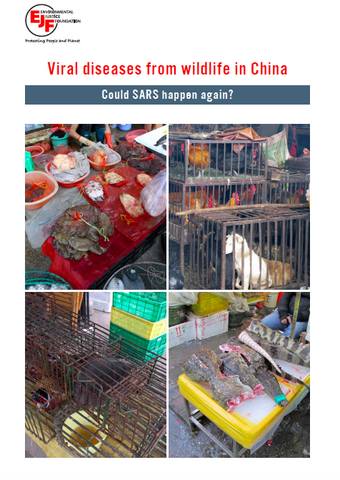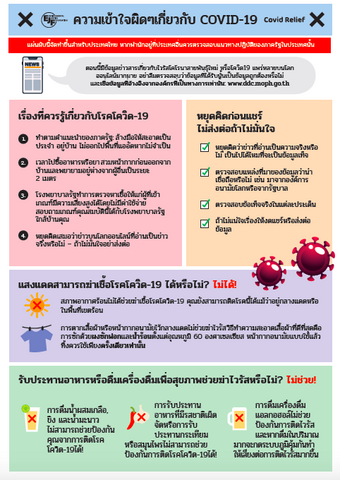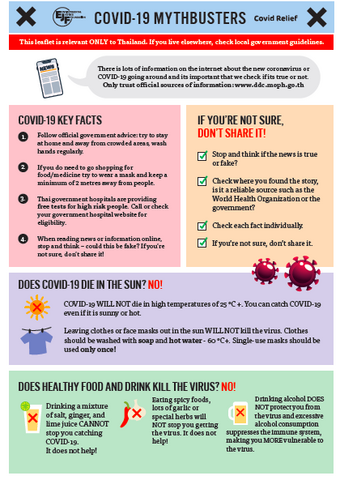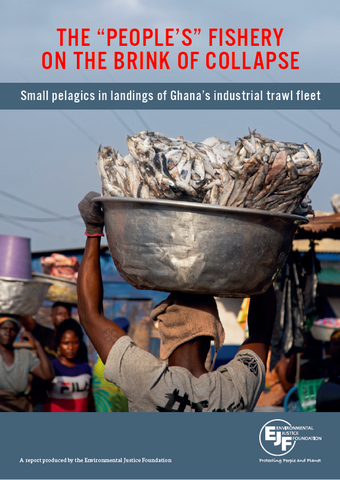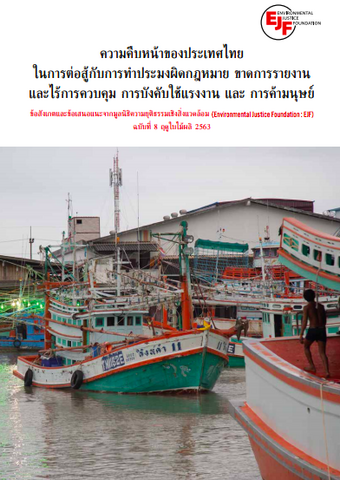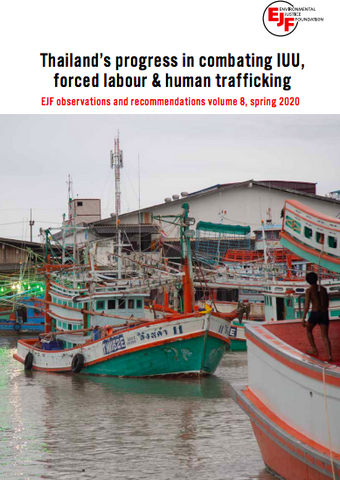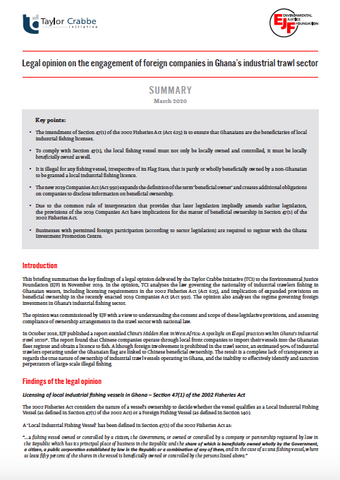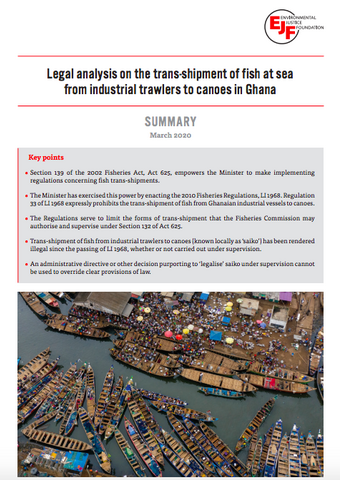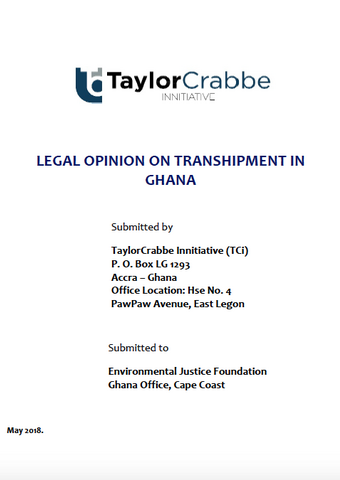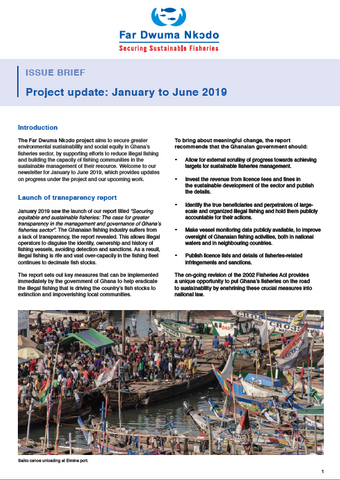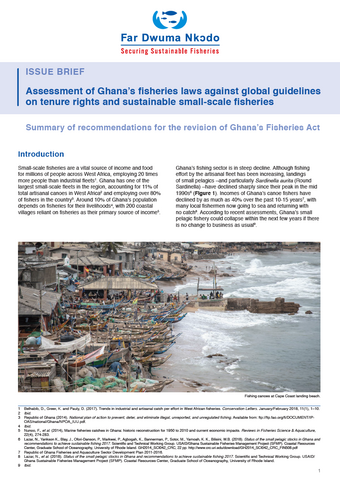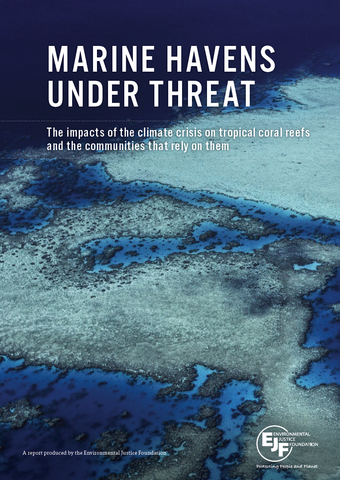Viral diseases from wildlife in China: Could SARS happen again?: Originally published in 2003 in the wake of SARS, this report reviewed zoonotic viruses that transmit from animals to humans. The report warned that China was the most likely candidate for the next novel zoonotic virus. The report shows the the Covid-19 pandemic was predictable and key lessons were missed.
The “people’s” fishery on the brink of collapse: Small pelagics in landings of Ghana’s industrial trawl fleet: Ghana’s sardinella fishery, which provides food and livelihoods for coastal communities, is under severe threat from illegal targeting by trawlers in the ‘saiko’ trade. Sampling of saiko sardinella revealed the fish were 99% juveniles. These young fish are crucial to the recovery of a population that is already on the brink of collapse, having crashed by 80% over the past twenty years.
รายงานเรื่องความคืบหน้าของประเทศไทย ในการต่อสู้กับการทำประมงผิดกฎหมาย ขาดการรายงาน และไร้การควบคุม การบังคับใช้แรงงาน และ การค้ามนุษย์ ข้อสังเกตและข้อเสนอแนะจากมูลนิธิความยุติธรรมเชิงสิ่งแวดล้อม (ENVIRONMENTAL JUSTICE FOUNDATION : EJF) ฉบับฤดูใบไม้พลิ ปี: ในช่วงปีที่ผ่านมา EJF ได้เห็นพัฒนาการในการดำเนินงานศูนย์ควบคุมการแจ้งเข้า – ออกเรือประมง อาทิ การนำหลักการตรวจสอบเรือประมงตรวจเรือประมงตามความเสี่ยง มาประยุกต์ใช้ และการเร่งเพิ่มจำนวนล่ามประจำศูนย์ควบคุมการแจ้งเข้า – ออกเรือประมง อย่างไรก็ตามยังคงมีบางประเด็นปัญหาและข้อกังวลที่อาจส่งผลต่อระบบการบริหารจัดการการติดตาม ควบคุม และเฝ้าระวังการทำประมงโดยรวมหากไม่ได้รับการแก้ไข
Thailand’s progress in combating IUU, forced labour & human trafficking: EJF observations and recommendations volume 8, spring 2020: Over the last year EJF has observed improvements in PIPO inspection procedures, adoption of a risk-based approach to vessel inspections, and the proliferation of translators at PIPO centres. However, issues and concerns remain.
Legal opinion on the engagement of foreign companies in Ghana’s industrial trawl sector: This briefing summarises the key findings of a legal opinion delivered by the Taylor Crabbe Initiative to the Environmental Justice Foundation. In the opinion, TCi analyses the law governing the nationality of industrial trawlers fishing in Ghanaian waters.
Legal analysis on the trans-shipment of fish at sea from industrial trawlers to canoes in Ghana: This briefing summarises the key findings of a legal opinion delivered by Ghanaian legal consultancy the Taylor Crabbe Innitiative on the legal framework governing the trans-shipment (i.e. transfer) of fish from industrial trawlers to canoes at sea.
Far Dwuma Nkodo project update: January – June 2019: The Far Dwuma Nkɔdo project is implemented by EJF and Hen Mpoano, with funding from the EU. The project aims to secure greater environmental sustainability and social equity in Ghana’s fisheries sector, by supporting efforts to reduce illegal fishing and building the capacity of fishing communities in the sustainable management of their resource.
